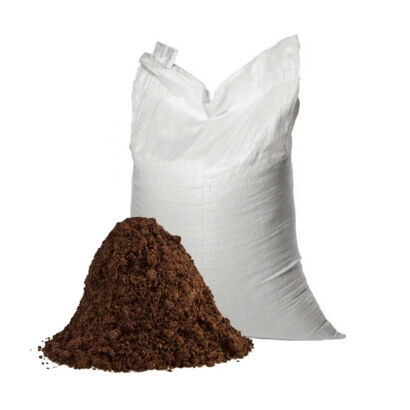Biohumus
In our nursery, you can buy high-quality biohumus with a volume of 5 liters or more, which we produce on the lands of the All-Union Agricultural Academy in compliance with all agrotechnical standards. Choose the quantity you need and place an order.
| planting material | Rowan, Plum, Currant, Thyme, tomatoes, Dill, Garlic, Spinach, Sorrel, Apple tree, blackberry, Watermelon, Basil, Eggplant, Sweet potato, Grape, Mustard, Pear, Daikon, Melon, Honeysuckle, Cabbage, Potato, Strawberry, Coriander (cilantro), Watercress, Gooseberry, Lemongrass, Onion, Raspberry, Mint, oats, cucumbers, Paprika, Pepper, Parsley, Rape, Radish, Rosemary, Arugula, Beet, Celery |
| Purpose | Base |
| View | Dry |
| Growing method | Substrates, The soil |
| Phase | Bloom, vegetation, Protection |
| Application | Root top dressing |
| Producing country | Russia |
Biohumus (vermicompost) is a product of organic waste processing by earthworms. Today it is the most effective organic fertilizer, environmentally friendly, harmless to soil, plants and humans.
Biohumus – It is widely used in planting, fertilizing all types of crops, in floriculture, horticulture, soil reclamation, and also for insect control.
It has been proven that the use of biohumus at all stages of plant growth – increases the yield by 30-50%, increases the resistance of plantings to diseases and pests.
The most valuable nutritional composition
Biohumus is enriched with essential nutrients. Its composition breaks records in the number of trace elements, enzymes, vitamins, soil antibiotics, etc. & nbsp; All elements of vermicompost are perfectly balanced and easily absorbed by plants.
Compared to other organic fertilizers, biohumus contains significantly more mobile nutrients: 30 times – digestible potassium, 7 times — phosphorus, in 2 – magnesium and calcium. The bacterial flora of vermicompost is thousands of times higher than that of animal manure, which was considered the best natural fertilizer. For comparison, 1 gram of biohumus contains – up to 200 billion colonies, in manure 200-300 million per 1g;
Agrochemical composition of biohumus, %:
- dry organic matter — 40—60%;
- humus — 20-30;
- nitrogen total 1.5-3.3;
- phosphorus (P2O5) — 1.8—4;
- potassium (KgO) — 1.2—3;
- calcium— 4.5—7;
- magnesium — 0.5—1.6;
- iron — 0.6—1.3;
- copper — 0.03—0.04;
- zinc — 0.08—0.09;
- manganese — 0.06— 0.09;
- bacterial flora— up to 2000 billion colonies in 1 g of biohumus.
- biohumus humidity — 40—50%;
- acidity (pH)—6.5—7.2;
Viohumus advantages:
- Biohumus has a granular structure, has a pleasant smell of fresh earth.
- When applied to the soil, the fertilizer activates the processes inherent in healthy soil. Restores its structure, water, acid-base, chemical composition, restores natural fertility.
- With vermicompost, the remains of earthworms and microorganisms enter the soil, as well as their metabolic products, including phytohormones that promote intensive plant growth.
- Fertilizer perfectly retains moisture in the soil, thereby protecting plants from drought. And the number of waterings is reduced.
And also biohumus:
- forms the natural immunity of the plant, makes it more resilient;
- intensifies the color of the leaves of trees, flowers, lawn grass;
- binds heavy metals and radionuclides in the soil, prevents plants from accumulating nitrates;
- guarantees maximum survival of plants;
- reduces the time of seed germination and emergence of the first shoots, increases the yield.
